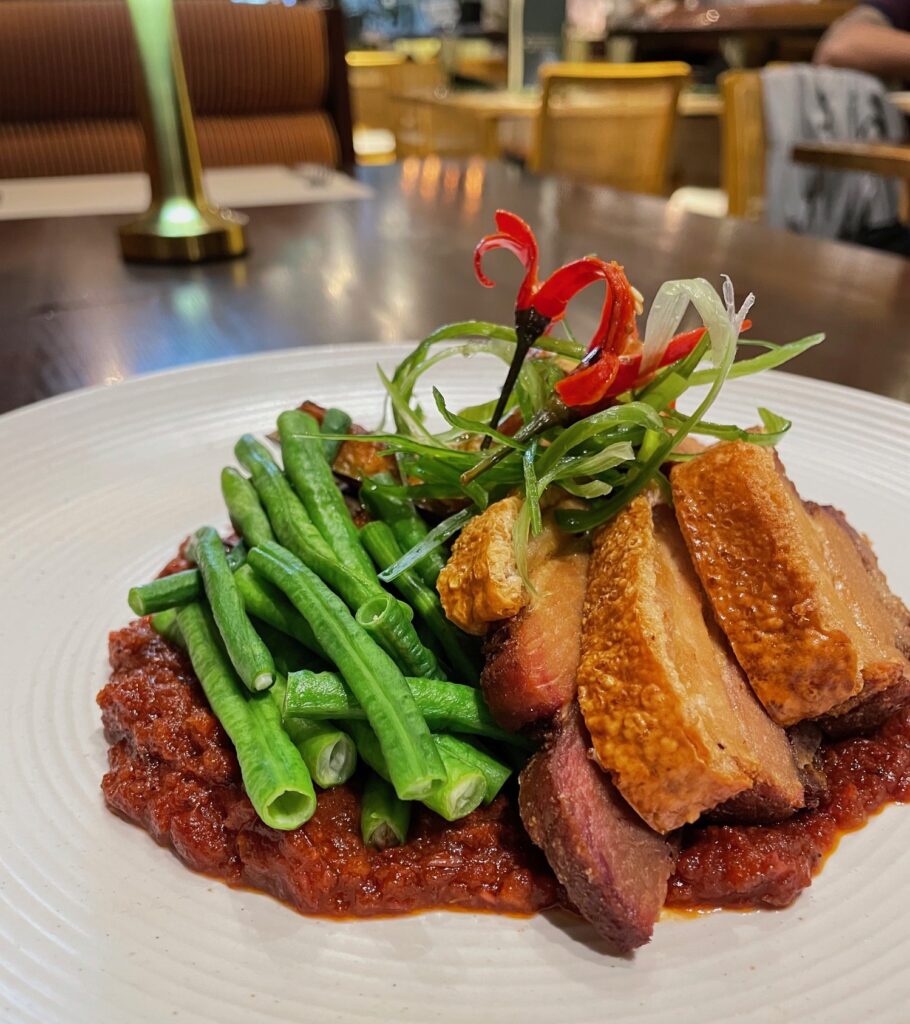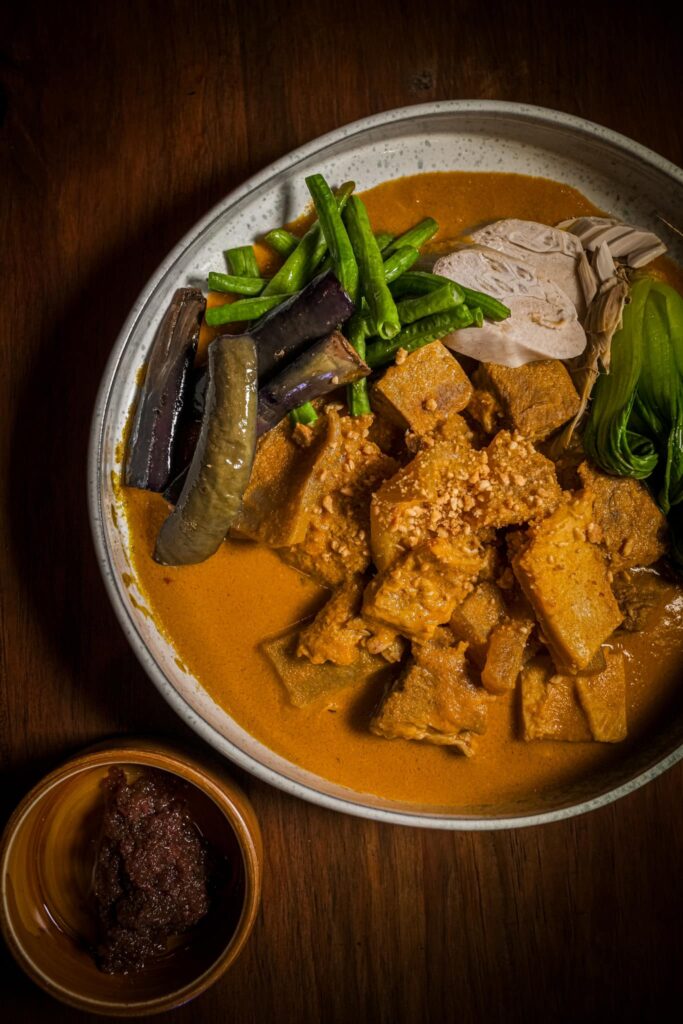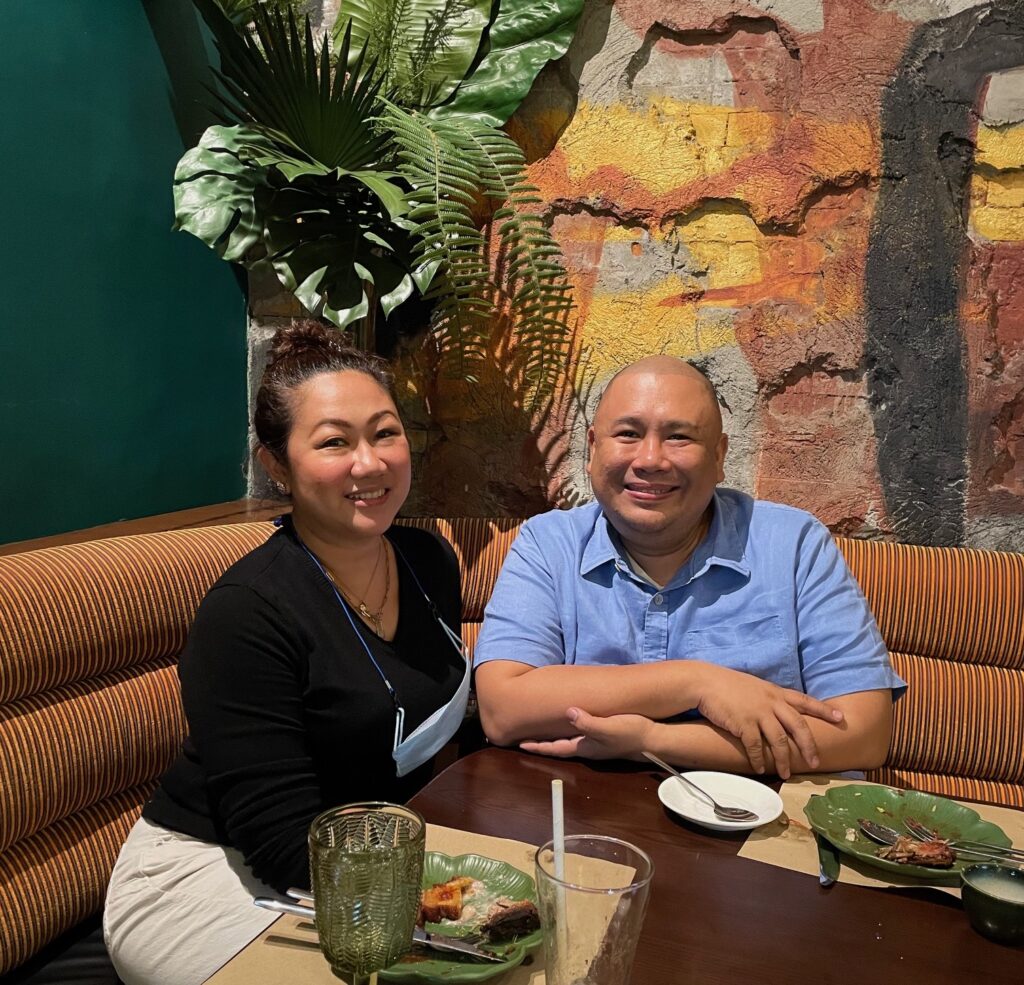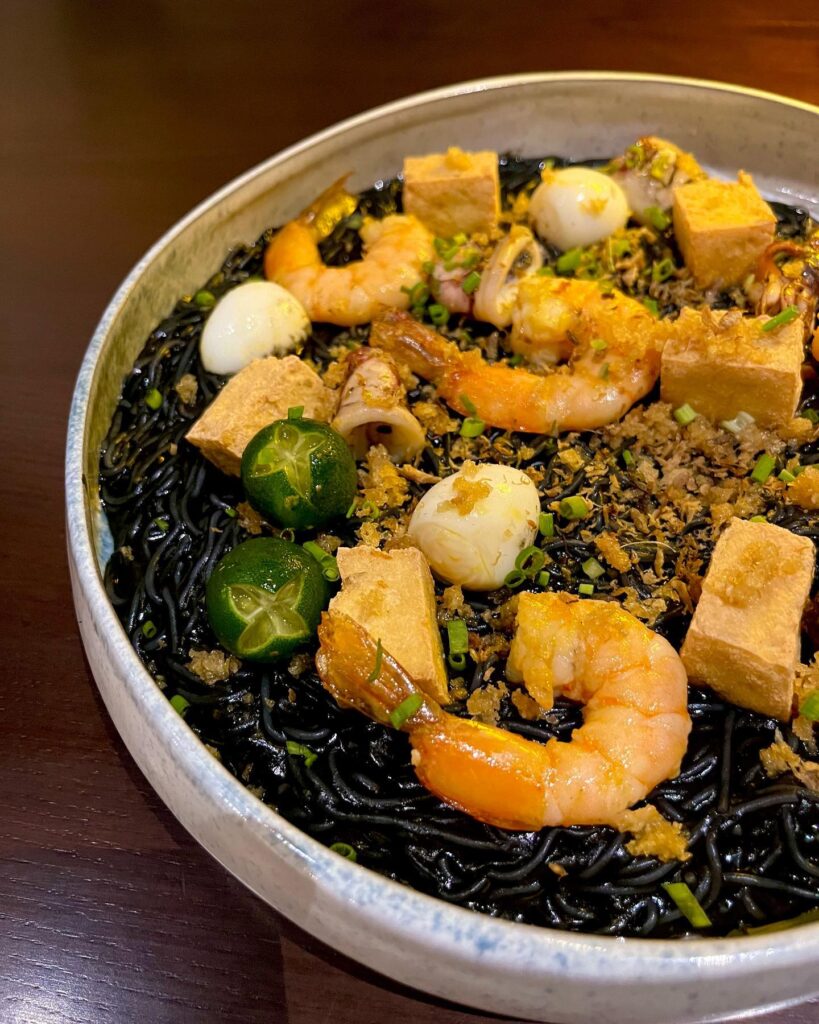The cheeky, cerebral Cebuano shares the importance of authenticity and hard work.
I arrive at the restaurant and the receptionist, it seems, was not made aware of our meeting. When I said that I would be joining celebrity chef Myke “Tatung” Sarthou for lunch, the young lady manning the podium literally sparkled with excitement.
“Dadating si chef?” she asked, wide-eyed.
Perhaps my job has made me less affected by his star power, having interviewed him a few times in the past about the new restaurants he was opening. We have become friendly over the years, and so sometimes I forget the magnitude of his self-made brand and celebrity status.

At a time when people are so determined to label their identity and stick to the brand or image they have created for themselves, it is always refreshing to see someone like Chef Tatung who refuses to fit any mold. Always evolving and adapting, he navigates his multimedia universe effortlessly because he is totally aware of his weaknesses, strengths, and preferences. He has fans and allies in all sectors simply because he does what he does well, and he is what he is.
It has been raining all morning and Chef Tatung is running late. I almost thought he would cancel knowing he was coming to BGC from his Quezon City office. “On the way,” he says when I let him know that some restaurants are closed for the day due to inclement weather and I would completely understand if he wished to reschedule.
The celebrity chef, TV personality, Filipino food advocate, and award-winning author expertly straddles highbrow dining while staying approachable—both in his food and personality.
A few minutes after I settle into a booth, his imposing figure walks into the restaurant and it is difficult not to notice. He is not typically loud, although with the right company he can be naughty and gregarious. If you did not know him, you would find his wide six-foot frame quite intimidating, until he gives you a disarming smile like he’s about to share a fun little secret.
“I’m so hungry, did you order?” he asks, even as we are at his upscale Filipino restaurant Lore and we would be sampling some of the regional a la carte dishes that the chef needs approval for from Tatung. “I’m doing intermittent fasting so I have not eaten.”

Tales of Lore
Lore was meant to be a modern Filipino tasting menu concept, but perhaps it was not appropriate for its mall location. Where others might have faltered or hesitated, Tatung simply supplemented it with an a la carte menu featuring dishes he learned to prepare from his travels around the country. I point out how it takes abundant confidence and self-awareness to simply change a concept that is not working as well as one expected.
“Yes, and with no apologies, no explanations! Are you (speaking to his diners and critics) going to be paying my rental? Hindi naman eh. And yet, people are not turned off by (the shift),” he points out. “I never put on that front that I am super successful and I never fail at anything. People know I go through hardships and failures, these people understand what I have to do to survive. No need to be dramatic about it.”

I was admiring the flavors of his pinuneg, a Cordilleran smoked blood sausage, which he makes in his commissary. Tatung initially wanted to make a Filipino deli concept in a Cubao location but the space offered was too large.
Tatung explains: “When we did our ocular, I saw that everyone was already there— Wolfgang’s Steak House, Margarita (Forés), of course, coz it’s in Cubao. Also Claude Tayag. And then here I come opening a new brand? Of course, I feel that using my name would put me at an advantage. Sure ako bebenta, automatic, in Quezon City.”
So, he decided that a Filipino cafe concept would be best, beautifully designed by another respected name, Ivy Almario-Nieva, since Tatung believes that beautiful aesthetic is expected of his restaurants by patrons and investors.
While the concept is new, he will be offering dishes that his followers have grown to love. “The dishes will be ‘Tatung favorites,’ already tried and tested. It’s not going to be tied to a specific concept either— it’s Filipino but also a bit western. We are still fixing the menu but it will definitely feature a lot of our deli products from the commissary.”

So different from when we first met many years ago, when Chef Tatung was writing his first book on Filipino culinary history and cooking very traditional local dishes. “ The challenge for me is always: How do I roll out a Filipino concept without replicating one that already exists in my lineup? Making another Lore, for instance, doesn’t make sense to me. It has to be a different experience.”
Tatung does venture into other cuisines, such as continental comfort food at Azadore and Southeast Asian at Pandan Asian Cafe, but his bread and butter will always be Filipino food. “Filipino is my comfort zone, true, and yet I easily get bored. I do not like repeating. The cafe concept, though, is something that I want to turn into a chain. I might as well, right? Who else should take advantage of my brand but myself?”
A ‘simpol’ man in a not so simple world
His Simpol brand (a play on the word “simple” and also a self-deprecating poke at how Visayans like himself pronounce it) has grown from the time they shot some cooking videos for fun in between his segments at ABS-CBN’s Umagang Kay Ganda.
“This was back when molecular gastronomy was the thing, and it was still embarrassing to be cooking Filipino food. ‘Chefs’ did not cook Filipino food. People would raise their eyebrows at you and say, ‘You’re not a chef, you’re a kusinero!’ This was pre-Madrid Fusion, pre-progressive Filipino, so most were doing Western cuisine, pa truffle-truffle,” Tatung candidly imparts. “But when you go home, why do you still crave for adobo? Sure, you can do pasta very well, but can you make kare-kare? It’s so difficult! There is so much technique involved, it’s just different.”



He admits that getting into show business was a “tough shift.” “First of all, I struggle with Tagalog,” he admits. “I’m Bisaya, right? I write in English. Nabubulol ako because the teleprompter is in Tagalog and a lot of the words are not something I commonly use. It was a struggle, but I just decided to go with the flow and make things happen.”
In Cebu, he was a journalist, a producer and manager in the music industry, but when he came to Manila he had to start from scratch. “Unlike other more established chefs at the time, I’m not from here. They grew up here (in Manila), this is where they studied, they have clout coming from influential families. If I did not make my own way, how else would I get noticed? I know how to weave a story, I know how to make myself relevant. Sure, part of it is luck. But it helps to also know where to be at the right time.”
‘Filipino food is my comfort zone, true, and yet I easily get bored. I do not like repeating.’
You seem so self-aware, I tell him. He replies, “It is easy to promote another person and tell them what to do. But, when it comes to me, it is so important that what I do is honest and authentic. Even on Instagram, I don’t curate my posts because I think that I’m not anymore being truthful. Everything is so calculated and I do not want to fall into that trap.”
He continues, “When you’re so caught up with your own branding, your personality becomes compartmentalized. Like, when you’re around media you have this front, but around others you are a completely different person. I don’t want to live a life where I have to be two-faced. That’s a difficult life.”



So, what is his secret to longevity in the F & B industry, a business so cutthroat that many fail? “It helps that I have always been aware of my relationships with people. Being loyal to my sponsors and supporters. I’m here up to now because the people who have always been in my corner since I started are still there to support me.”
He suddenly grows pensive and says, “If I hurt someone, then I might not be aware of it. But once I am then I make it a point to reach out and make things right.” He adds: “Also, if I had five or even 10 restaurants, but all the same concept, do you think I would be as popular? I know that I always have to offer something new and exciting. Something worth talking and writing about. If you open a hundred stories of the same thing, there’s no new story to tell.”




